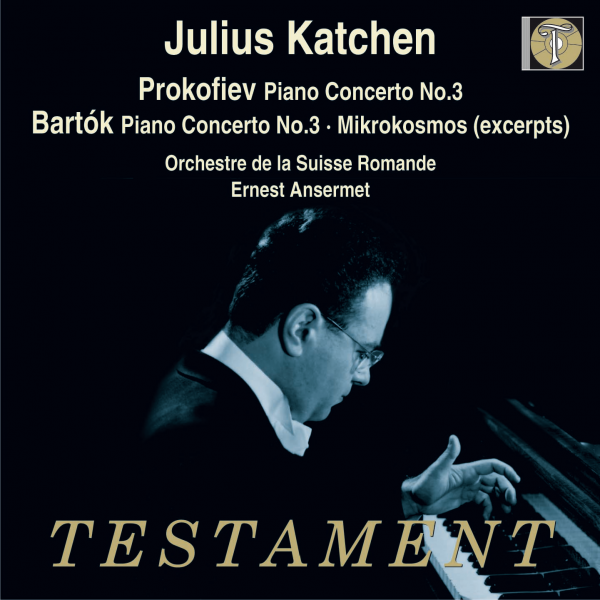Logowanie
OSTATNI taki wybór na świecie
Nancy Wilson, Peggy Lee, Bobby Darin, Julie London, Dinah Washington, Ella Fitzgerald, Lou Rawls
Diamond Voices of the Fifties - vol. 2
Tylko 1000 egzemplarzy!!!
DVORAK, BEETHOVEN, Boris Koutzen, Royal Classic Symphonica
Symfonie nr. 9 / Wellingtons Sieg Op.91
nowa seria: Nature and Music - nagranie w pełni analogowe
Petra Rosa, Eddie C.
Celebrating the art and spirit of music - vol. 3 - Pure
warm sophisticated voice...
Peggy Lee, Doris Day, Julie London, Dinah Shore, Dakota Station
Diamond Voices of the fifthies
Tylko 1000 egzemplarzy!!!
SAMPLER - STS DIGITAL, Buddy Tate, Milt Buckner, Walace Bishop
Jazz Masters - Legendary Jazz Recordings - v. 1
proszę pokazać mi drugą taką płytę na świecie!
Chesky! Niezmiennie perfekcyjny
Winylowy niezbędnik
ClearAudio
Double Matrix Professional - Sonic
najbardziej inteligentna i skuteczna pralka do płyt winylowych wszelkiego typu - całkowicie automatyczna
PROKOFIEV, BARTOK, Julius Katchen, L'Orchestre de la Suisse Romande, Ernest Ansermet
Piano Concerto No. 3 / Piano Concerto No. 3 / Mikrokosmos Vol. 6 (excerpts)
- Sergei Prokofiev (1891-1953)
- Piano Concerto No.3 in C, Op.26 ℗ 1954
- Klavierkonzert Nr.3 C-dur/Concerto pour piano no3 en Ut majeur
- 1 I Andante - Allegro
- 2 II Tema (Andantino) con variazioni
- 3 III Allegro ma non troppo - meno mosso - Allegro
- Béla Bartók (1881-1945)
- Piano Concerto No.3 Sz.119 ℗ 1954
- Klavierkonzert Nr.3/Concerto pour piano no3
- 4 I Allegretto
- 5 II Adagio religioso - Poco più mosso - Tempo I
- 6 III Allegro vivace - Presto
- Mikrokosmos, Volume VI, Sz107 ℗ 1953
- 7 No.104 - Free Variations
- 8 No.144 - Minor Seconds, Minor Sevenths
- 9 No.146 - Ostinato
- 10 No.147 - March
- 11 No.148 - Dance in Bulgarian Rhythm 1
- 12 No.149 - Dance in Bulgarian Rhythm 2
- 13 No.151 - Dance in Bulgarian Rhythm 4
- 14 No.153 - Dance in Bulgarian Rhythm 6
- Julius Katchen - piano
- Ernest Ansermet - conductor
- L'Orchestre de la Suisse Romande - orchestra
- PROKOFIEV
- BARTOK
Known for his thorough-going interest in the music of Brahms, Julius Katchen (1926-1969) was an American virtuoso and contemporary of the more flamboyant William Kapell, and their musical interests were not dissimilar. Katchen's was a more classical style, but equally muscular and aggressive. If Kapell gravitated towards Copland, Katchen found a sympathetic spirit in Rorem. Both artists gave fire and panache to Prokofiev's Third Concerto. Katchen's recording in this set is his earlier of two, this made in November 1953 with Ernest Ansermet, always a sympathetic reader of the iconoclastic Russian. Katchen executes some graceful filigree in the second movement theme-and variations, and he gets the blood racing in the finale. The Bartok, from October 1953, tries to balance a Hungarian ethos with French taste, in the manner of the Annie Fischer/Igor Markevitch inscription. The second movement nocturne is particularly refined, with Ansermet's orchestral tissue's having a balletic character. The Mikrokosmos group shows off Katchen's relishing all kinds of eccentric accents and irregular metric units, free dissonances and displaced intervals. Even in the course of punishing acrobatics, Katchen manages a semblance of warmth and grace in what are Bartok's experiments for his larger forms. Assuming Testament will continue to issue Katchen's Decca originals, might we hope for the return of the Katchen/Monteux Brahms' D Minor Concerto? (Gary Lemco, Audiophile Audition, October 2003)





























